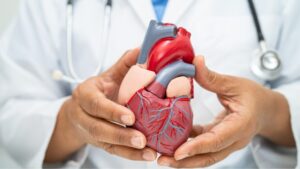Feeling Tired, Forgetful, or Numb? Here’s How to Fix What Your Body Might Be Missing

Feeling Tired, Forgetful, or Numb? Here's How to Fix What Your Body Might Be Missing
Many of us focus on visible signs of health — glowing skin, good sleep, or high energy — but what if your body is quietly signaling a problem you can’t see? One such overlooked issue is a deficiency in Vitamin B12, an essential nutrient that plays a major role in keeping your nerves, brain, and blood cells functioning properly.
If you’ve been feeling low on energy or not quite like yourself, it could be your body’s way of hinting at a B12 shortage. Here’s how to spot the subtle symptoms before they grow into serious health problems — and what you can do to fix it.
Key Symptoms of Vitamin B12 Deficiency
1. Constant Fatigue and Weakness
Even after a full night’s rest, do you still feel tired or drained? Vitamin B12 is vital for making red blood cells that carry oxygen through your body. Without enough of it, you may feel chronically exhausted and weak, which can indicate anemia caused by low B12 levels.
2. Tingling or Numbness in Hands and Feet
A lack of B12 affects your nerves. Early signs often include a pins-and-needles sensation, particularly in your limbs. If ignored, this can progress to peripheral neuropathy — long-term nerve damage that affects coordination and movement.
3. Memory Problems and Difficulty Concentrating
Forgetfulness, mental fog, or trouble focusing may not just be due to stress. B12 supports brain health, and a deficiency can lead to cognitive issues, irritability, and mood swings.
4. Nerve and Coordination Issues
Long-term B12 deficiency can damage the nervous system, leading to issues with movement, balance, and coordination. If left untreated, this damage may become irreversible.
5. Mouth Sores or a Swollen Tongue
Painful mouth ulcers or an inflamed tongue are often early signs of deficiency. These can cause discomfort while eating or speaking and signal your body’s nutrient imbalance.
What to Do If You Suspect a Deficiency
If you recognize one or more of these symptoms, consult your doctor. A simple blood test can determine your B12 levels. If they’re low, your doctor might recommend dietary changes, oral supplements, or in some cases, injections.
How to Boost Vitamin B12 Through Diet
For Non-Vegetarians:
Animal-based foods are the richest natural sources of B12. Include more of the following in your diet:
- Eggs
- Milk and yogurt
- Paneer (cottage cheese)
- Chicken and red meat
For Vegetarians or Vegans:
B12 is harder to find in plant-based foods, but you can still meet your needs through fortified products and supplements. Try:
- Fortified cereals
- Soy or almond milk with added B12
- Nutritional yeast (B12-enriched)
Supplements may be essential if you’re unable to meet your needs through food alone.
Final Takeaway
Vitamin B12 deficiency is often mistaken for stress, aging, or just everyday tiredness — but it can have long-term health consequences if ignored. The good news? It’s easy to detect and treat once you know what to look for. Listen to your body’s early warning signs and take action through mindful eating and professional guidance.
Disclaimer:
This article is for informational purposes only and should not replace medical advice. If you are experiencing any of the above symptoms, please consult a healthcare professional.












